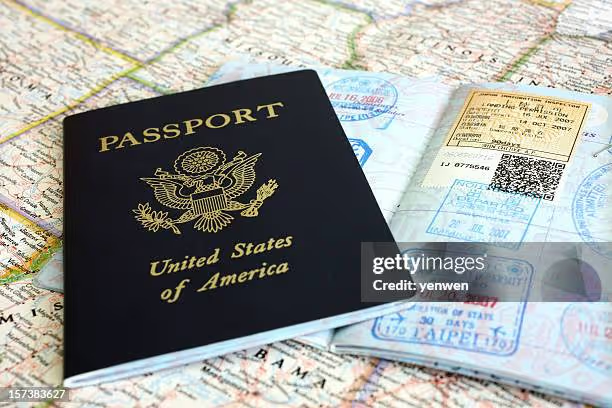.png)
.png)
Master third-party corroboration for O-1 visas. Learn how expert letters, market impact, and independent validation prove major significance effectively.

Immigration officers review hundreds of petitions monthly. Most applicants submit evidence. Few prove major significance. The difference? Third-party validation. USCIS requires evidence of original contributions of major significance. That phrase trips up smart people constantly.
"Major" means your work changed something important. "Significance" means people in your field care. Together? Your contributions need to matter to people beyond yourself and your immediate team. Self-promotion gets rejected. Independent validation gets approved.
You claim extraordinary ability. Officer needs proof from others. Think about it. Anyone can say they're amazing. Not everyone can get recognized experts to say it. The consultation letter serves as critical evidence for USCIS, acting as external verification that validates the individual's accomplishments meet required standards through independent assessment from reputable authorities.
Third-party validation removes bias. It demonstrates consensus. It shows your field recognizes your contributions. USCIS wants to see that you didn't just do good work. They want evidence that respected people in your field acknowledge your work as exceptional.
Letters from experts who never worked with you carry more weight than collaborators. Why? Independence. Market adoption by competitors? Powerful. They wouldn't use your approach unless it worked exceptionally well. Media coverage from outlets that found you rather than vice versa? Strong evidence. Citations by researchers unconnected to your institution? That's organic recognition.
Expert letters O-1 cases rise or fall on letter quality. Not quantity. Quality. Five weak letters lose to two outstanding ones every time. Who qualifies as an expert? Recognized leaders in your specific field. Published authors. Conference keynote speakers. Patent holders. Award recipients. People at the very top.
USCIS pays specific attention to expert testimony from individuals who have not directly worked with you but know you based on your reputation and stature in the field. Their credentials matter enormously. Include their CV. Highlight their accomplishments. Prove they can judge extraordinary ability because they possess it.
Letters should be detailed and specific. Generic praise fails. "I think this person is great" gets ignored. "This specific contribution solved a problem that stumped our field for a decade because..." That works.
Compare you to others. Experts should contextualize your position. "Among professionals working on quantum computing optimization, perhaps five individuals worldwide have achieved comparable results."
Explain significance in accessible terms. Remember, immigration officers aren't experts in your field. The letter should educate them about why your work matters. Independent experts trump collaborators. A letter from someone who knows your work through professional channels but never worked with you directly? Gold standard.
Beyond Border's expert network connects you with credible validators who can articulate your contributions' significance in immigration-ready language.
Market impact O-1 visa evidence beats theoretical contribution claims. Show don't tell. Demonstrate real-world adoption. Are companies using your technology? How many? Which ones? Document every implementation. Has your work changed industry practices? Show before-and-after. "Prior to this innovation, professionals relied on X approach. Following publication, industry standard shifted to Y."
Revenue impact matters. If businesses saved money or made money because of your contribution, quantify that. Evidence of your work being implemented by others includes important partnerships, case studies, pilots successfully conducted, and contracts with companies using your products.
Job creation counts. Did your innovation enable new roles? New departments? New companies? Educational adoption proves influence. Universities teaching your methodology? Textbooks referencing your work? Professional certification programs incorporating your approach?
Standards bodies cement significance. Was your work incorporated into industry standards? ISO standards? RFC specifications? W3C recommendations? Competitor response validates importance. After you published, did competitors develop similar approaches? That's acknowledgment your direction was right. Customer testimonials from major organizations strengthen cases. Fortune 500 clients explaining how your work solved critical problems? Include those.
Independent validation extraordinary ability requires true third parties. Not friends. Not family. Not co-founders. People with no personal stake in your success. Peer reviewers who accepted your publications. They gatekeep quality. Their acceptance validates contribution.
Conference program committees that invited you to speak. Unsolicited invitations carry the most weight. They reached out based on your reputation. Award selection committees. Especially for competitive honors. Show the selection process. Prove it wasn't participation trophy.
Government agencies that funded your work. Grant competitions are fierce. Winning means experts believed your work had major significance. Industry analysts who independently covered your work. Gartner. Forrester. IDC. These firms research without vendor bias.
Journalists from major publications. When tech reporters or trade publication writers cover your work without you pitching them? Strong validation. Competing companies that adopted your approach. Nothing says "this works" like competitors copying you. Academic researchers who cited your work in different institutions across multiple countries. Geographic and institutional diversity matters.
Structure your independent validation to meet USCIS scrutiny with Beyond Border's petition strategy.